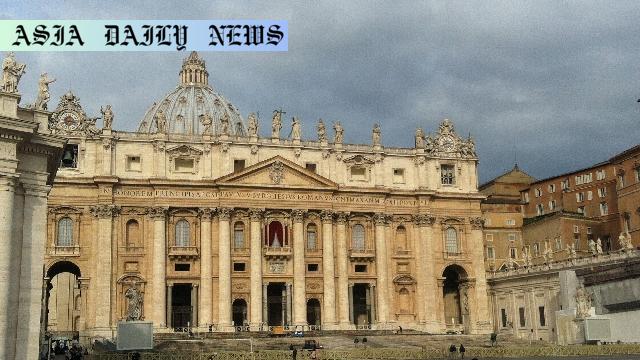Ukraine-Russia Talks: Technical-level discussions may unfold at the Vatican next week, offering new hope for peace amid ongoing conflict.
The Vatican may host Ukraine-Russia technical-level talks next week.
Pope Leo XIV extended an invitation for peace discussions.
Finland’s President Alexander Stubb confirmed Europe’s growing role.
U.S. continues its mediating role amid ceasefire negotiations.
A large-scale prisoner exchange was recently agreed upon.

Ukraine-Russia Technical-Level Discussions: Renewed Diplomacy
In a notable development amidst the tense and prolonged conflict between Ukraine and Russia, the Vatican emerges as a potential stage for technical-level peace talks scheduled for next week. Finnish President Alexander Stubb recently revealed the progress in peace efforts, confirming Europe’s active engagement in fostering mediation. This announcement follows a phone discussion between Stubb and Ukrainian President Volodymyr Zelenskyy, as well as communications with other key stakeholders from recent high-level negotiations.
Europe Takes a Stronger Stance in Ceasefire Negotiations
While the United States continues its mediating role, Europe is becoming increasingly involved in the peace process. The talks planned at the Vatican represent a significant milestone in Europe’s broader participation in attempting to frame a ceasefire agreement between the two nations. Experts see this as a pivotal opportunity to mend soured relations through structured diplomacy.
The Role of Pope Leo XIV in the Peace Talks
Pope Leo XIV’s proactive involvement in proposing the Vatican as a venue for the peace discussions underpins his broader vision for global harmony. Following his inaugural Mass, both Zelenskyy and Russian President Vladimir Putin acknowledged his potential to mediate constructive dialogues. His commitment to peaceful resolutions exemplifies the Vatican’s enduring role as a neutral site for conflict resolution, a tradition upheld through decades.
Recent Outcomes and Continued Challenges
Last week’s direct talks in Turkey marked the first in three years between senior officials of Ukraine and Russia. While substantial progress toward a ceasefire agreement remains elusive, the negotiation did yield an accord for a large-scale prisoner exchange. This agreement, though limited in scope, is seen as an encouraging step towards mitigating hostility on a humanitarian level.
A Glimpse at Upcoming Opportunities
Observers are cautiously optimistic about the potential outcomes of the anticipated Vatican talks. While the road to a comprehensive ceasefire remains fraught with complexities, the mere willingness of both countries to convene signals a shared understanding of the need for dialogue. With concerted efforts from Europe, support from the U.S., and spiritual leadership from Pope Leo XIV, the global community watches keenly for breakthroughs that foster peace.
Commentary
The Role of Neutral Platforms in Peacemaking
The prospect of Ukraine and Russia hosting technical-level talks at the Vatican highlights an essential aspect of conflict resolution: the choice of a neutral platform for meaningful dialogues. The Vatican has historically served as a neutral venue capable of accommodating global peace efforts. This initiative reaffirms the critical role such institutions play in bridging divides and fostering multilateral understanding.
The Growing Role of Europe in the Peace Process
While the United States has long been regarded as a global leader in mediating international conflicts, Europe’s enhanced involvement in the Ukraine-Russia negotiations hints at a more balanced approach towards peacebuilding. Leaders like Finland’s President Alexander Stubb bring pragmatic perspectives needed to facilitate workable solutions. This evolution reflects the European Union’s intrinsic responsibility to maintain peace within its geographical bounds.
Challenges on the Road Ahead
Although the renewed emphasis on dialogue is a positive development, there are significant challenges that lie ahead. Achieving mutual concessions, upholding trust between adversaries, and ensuring long-term commitment to agreements are critical to enduring peace. Yet, initiatives such as the large-scale prisoner exchange and the Vatican meeting display glimmers of hope amidst the crisis.


